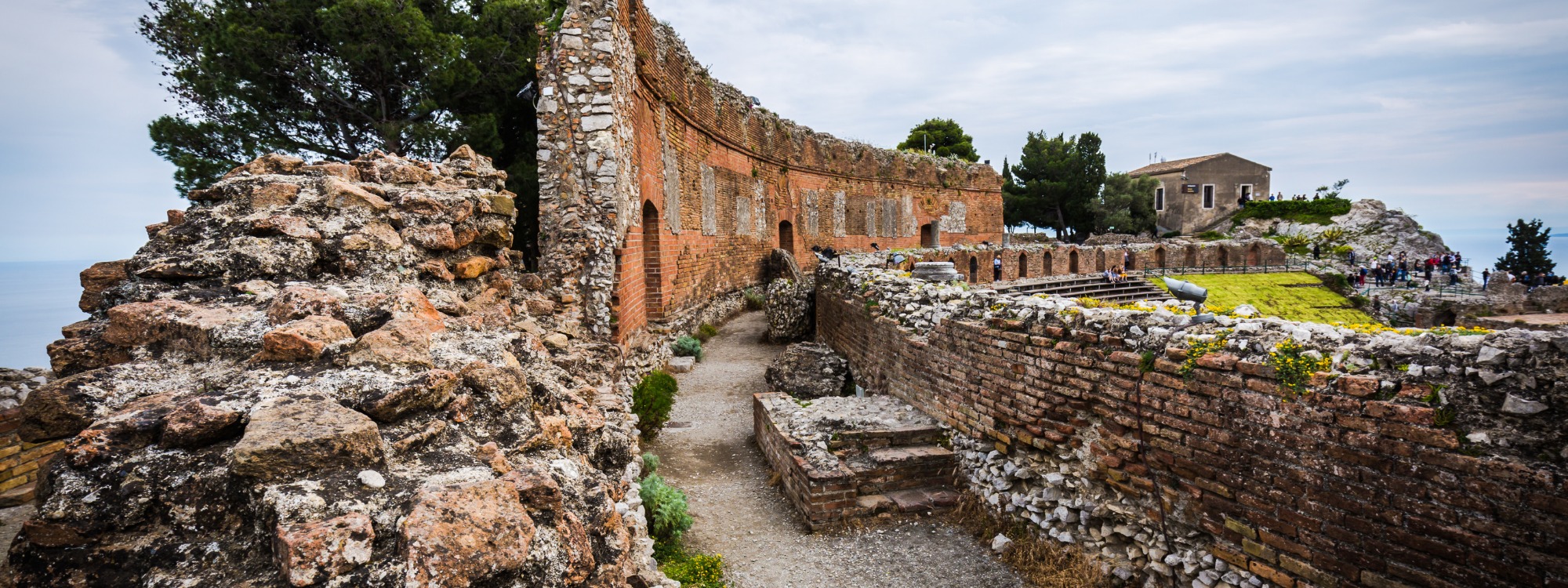
KS3 - Classics: Latin and Greek
We are proud to offer Latin and Classical Greek in Key Stage 3 at SLGGS, building upon the classical tradition in this school which has been unbroken since it was founded.
The language and culture of the classical world has had a lasting legacy on the Western world. Over half of words in the English language are derived from Latin and a larger percentage in other European languages. The study of classical languages therefore provides an in-depth understanding of language structure, vocabulary and encourages an ability to reason logically. Alongside language learning students will study the culture and history of the ancient world. Issues such as the range of Roman entertainment, slavery, the treatment of women and the Roman impact on Britain and Egypt are covered in detail.
Latin is part of all students’ curriculum in Year 8 and then part of the mini-options language process in Year 9. We follow the Cambridge Latin Course which was updated in 2022. We are one of only a few state schools to offer Classical Greek as an extracurricular class in Year 9, this leads to a full GCSE qualification in Year 10.
Year Group |
Areas of Study |
8 LatinCambridge Latin Course Book 12023/2024 |
In each stage the study of the Latin language is set in its historical context by studying 12 aspects of Roman life and culture:Term 1 Stages 1-2: Introduction to the Roman family, houses, food and daily life; basic work on nouns and verbsTerm 2 Stages 3-4: The town of Pompeii and its forum; developing case usage and verb endingsTerm 3 Stages 5-6: Entertainment in the Roman Theatre and Roman use of slavery; Latin plurals and introduction of the perfect & imperfect tensesTerm 4 Stages 7-8: The Romans and the supernatural & focus on the Roman amphitheatre; further study of the perfect & imperfect tenses and introduction of the accusative pluralTerm 5 Stages 9-10: The Roman baths and Roman schools; introduction of the Dative case and consolidation of verb tenses, with special focus on the presentTerm 6 Our sources of evidence for the eruption of Mt. Vesuvius. General consolidation of the three tenses covered by the course: present, perfect, imperfect |
9 LatinCambridge Latin Course Book 22023/2024 |
In each stage the study of the Latin language is set in its historical context by studying appropriate aspects of Roman life and culture:Term 1 Stage 13-14: Roman influence in Britain, especially on the economy & agriculture; the infinitive, volo & possumTerm 2 Stage 14-15: How the Romans governed Britain, with special focus on King Cogidubnus; use and agreement of adjectivesTerm 3 Stage 15-16: The palace at Fishbourne; revision of verb tenses & introduction of the pluperfectTerm 4 Stage 16-17 Alexandria and the Seven Wonders of the Ancient World; the genitive CaseTerm 5 Stages 17-18 Life in Roman Egypt, with a focus on glassmaking; more on adjectivesTerm 6 Stages 19-20 The worship of Isis and ancient medicine; hic, haec, hoc & imperatives; the present participleStudents also gain a qualification: Entry Level Latin (OCR) |
9 GreekTextbook: Greek to GCSE by John Taylor |
Term 1 – Chapters 1 & 2: introduction to verbs and nouns in 1st & 2nd declensionsTerm 2 – Chapter 3: Future and imperfect tensesTerm 3 – Chapter 4: Aorist TenseTerm 4 – Chapter 5: 3rd declension nouns and adjectives, participlesTerm 5 – Chapter 6: focus on participles; Aorist participleTerm 6 – Chapter 6: Future participle, possessive dative |


